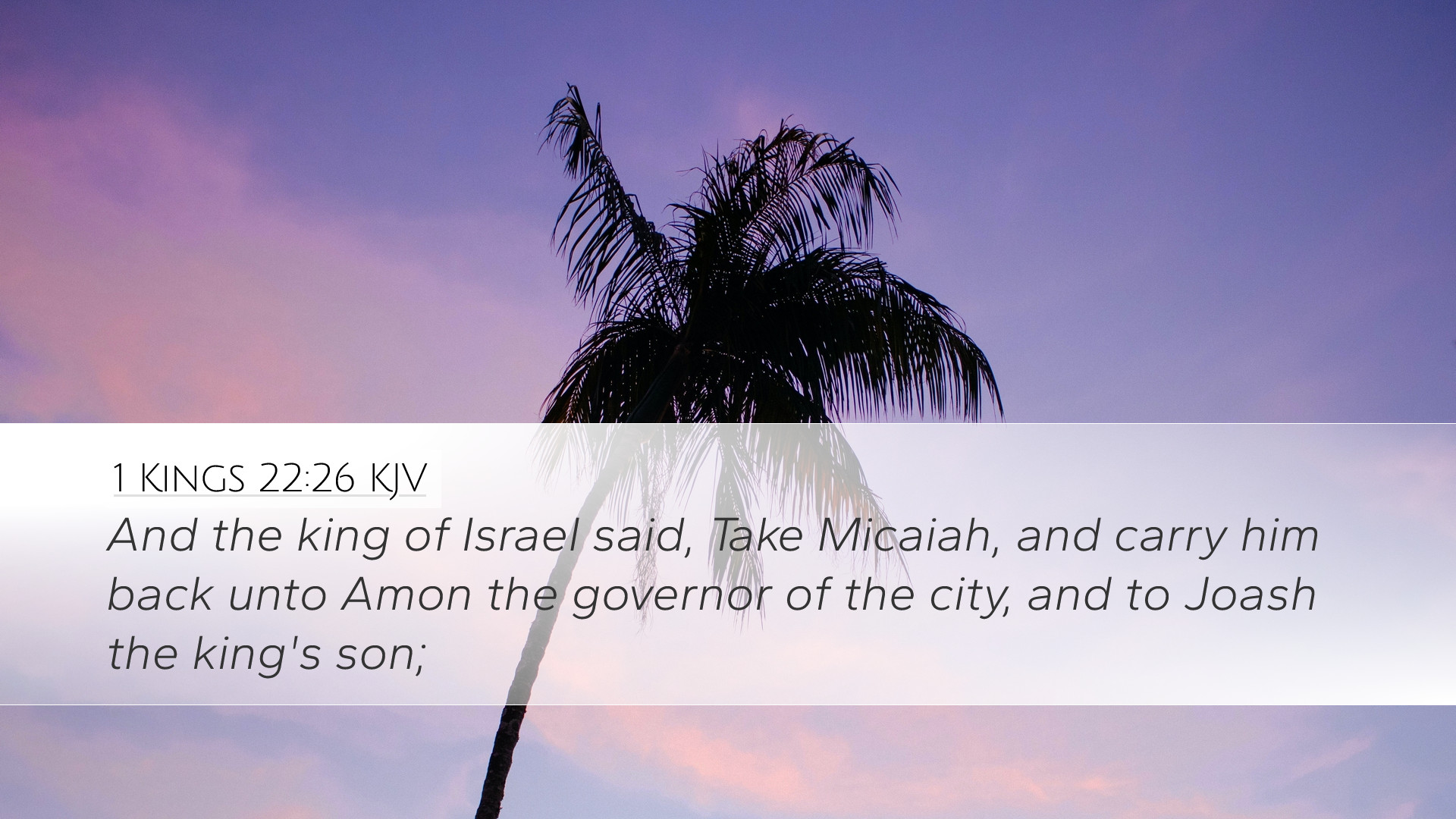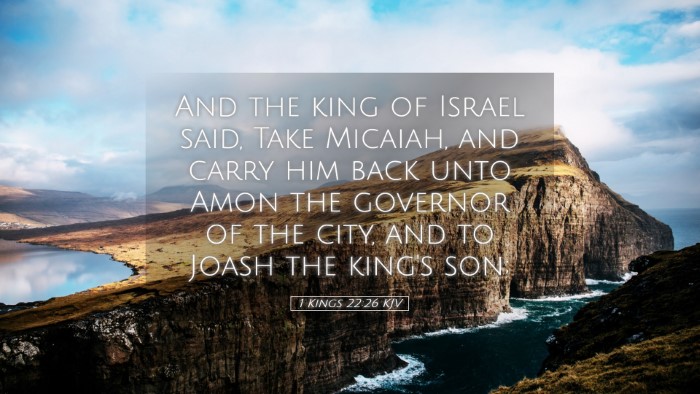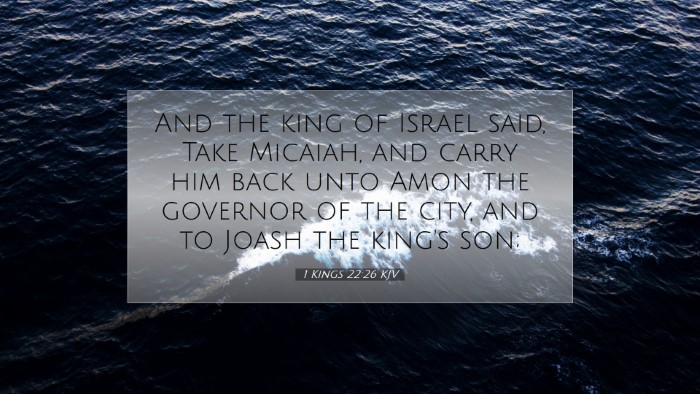Old Testament
Genesis Exodus Leviticus Numbers Deuteronomy Joshua Judges Ruth 1 Samuel 2 Samuel 1 Kings 2 Kings 1 Chronicles 2 Chronicles Ezra Nehemiah Esther Job Psalms Proverbs Ecclesiastes Song of Solomon Isaiah Jeremiah Lamentations Ezekiel Daniel Hosea Joel Amos Obadiah Jonah Micah Nahum Habakkuk Zephaniah Haggai Zechariah MalachiVerse
1 Kings 22:1 1 Kings 22:2 1 Kings 22:3 1 Kings 22:4 1 Kings 22:5 1 Kings 22:6 1 Kings 22:7 1 Kings 22:8 1 Kings 22:9 1 Kings 22:10 1 Kings 22:11 1 Kings 22:12 1 Kings 22:13 1 Kings 22:14 1 Kings 22:15 1 Kings 22:16 1 Kings 22:17 1 Kings 22:18 1 Kings 22:19 1 Kings 22:20 1 Kings 22:21 1 Kings 22:22 1 Kings 22:23 1 Kings 22:24 1 Kings 22:25 1 Kings 22:26 1 Kings 22:27 1 Kings 22:28 1 Kings 22:29 1 Kings 22:30 1 Kings 22:31 1 Kings 22:32 1 Kings 22:33 1 Kings 22:34 1 Kings 22:35 1 Kings 22:36 1 Kings 22:37 1 Kings 22:38 1 Kings 22:39 1 Kings 22:40 1 Kings 22:41 1 Kings 22:42 1 Kings 22:43 1 Kings 22:44 1 Kings 22:45 1 Kings 22:46 1 Kings 22:47 1 Kings 22:48 1 Kings 22:49 1 Kings 22:50 1 Kings 22:51 1 Kings 22:52 1 Kings 22:53

